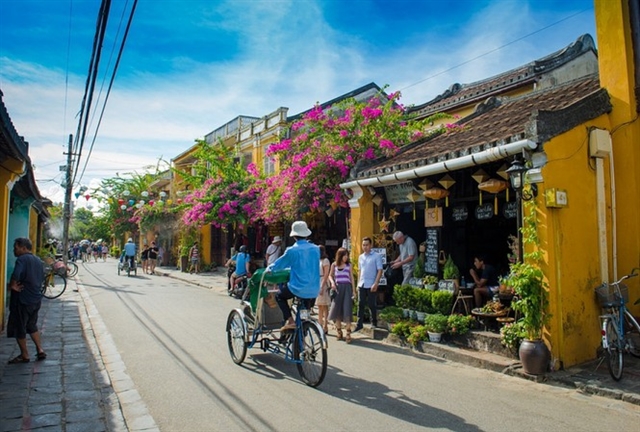VNAT needs to coordinate with local administrations and the Viet Nam Tourism Association (VITA) to advertise tourism destinations in the northwestern, northeastern and central coastal regions.

The Viet Nam National Administration of Tourism (VNAT) needs to coordinate with local administrations and the Viet Nam Tourism Association (VITA) to advertise tourism destinations in the northwestern, northeastern and central coastal regions.
Deputy Prime Minister Vu Duc Dam made this request during a meeting with the Ministry of Culture, Sports, and Tourism, Ministry of Transport, Ministry of Finance, Viet Nam Tourism Association (VITA) and several travel firms in Ha Noi on Wednesday to help the tourism industry weather the COVID-19 pandemic.
The Deputy PM also requested relevant ministries to soon set the schedules for this year’s upcoming public holidays and school summer break to boost domestic travel demand.
Viet Nam has more than 40,000 businesses and about 4.5 million people working in the tourism industry, one of the sectors hardest hit by the COVID-19 pandemic, he said.
Many small-size tourism enterprises have been put under great pressure by the outbreak so the government must find ways to re-energise them, he said.
Dam noted that though small firms like community-based tourism and homestay service providers are not large contributors to the State budget, they have played a crucial part in reducing poverty and improving living standards in remote and disadvantaged areas.
The Deputy PM asked the relevant ministries, agencies and local administrations to slash fees for hospitality firms fairly to help them overcome difficulties.
He also suggested to the stakeholders to organise more virtual international travel promotion events and develop tourism programmes to promote Viet Nam as a safe destination amid COVID-19.
“At present, the promotion of domestic tourism activities is important. This is also the choice of many countries with tourism advantages in the context of suspended international tourism due to the pandemic," said Nguyen Trung Khanh, VNAT general director.
According to VNAT, to remove the current difficulties of the tourism industry, the Government is requested to permit the Ministry of Culture, Sports and Tourism and relevant ministries to implement the communication programme "Viet Nam - safe and attractive destination".
In addition, the Government should have support for local tourism businesses. Of which, the Ministry of Industry and Trade should adjust electricity prices for tourist accommodation establishments to be at the same rates as electricity prices for production. This adjustment should be applied until the end of this year.
At the meeting, Nguyen Quoc Ky, Vietravel general director, said the Government should have policies to attract domestic tourists in the peak period from July to October.
It also needs to build key tourism regions for promoting tourism development in each region and regional links, and develop a tourism product chain connecting travel, aviation and service enterprises. Those activities would aim at stimulating tourism in the domestic market, he said.
Ky proposed the Government to have financial support for travel companies, the leading factor in the chain of tourism development, including transportation, accommodation and services.
He suggested a reduction in entrance fees at historical relic sites and tourist attractions managed by the State until the end of March 2021.
Regarding these fees, VITA vice-chairman Vu The Binh said many localities have not offered discounts for tourists.
"The price is not reduced much, but the reduction is localities' action to share the current difficulties with businesses of the tourism industry. These enterprises have discounted hotel prices and travel costs,” Binh said.
According to VITA, international tourist arrivals to Viet Nam in the first five months of this year totalled 3.7 million while the number of domestic holidaymakers stood at 16 million, down 50 per cent and 58.5 per cent, respectively, from the same period last year.
The total tourism revenue during this period reached VND150.3 trillion, a reduction of 47 per cent compared to the same period in 2019. Average room occupancy reached about 20 per cent, a sharp decrease compared to 52 per cent in the same period in 2019. — VNS




